Like so many good things, it started with a craving. It was a hankering for something that would tell the real stories behind Toronto’s food scene — not just where to eat, but why it mattered. In a city as hungry and ever-changing as Toronto, foodism launched in 2015 with a mission: to celebrate the chefs, bartenders and makers shaping the way we eat and drink. Ten years later, we’re still at the table — and it’s been one hell of a ride.
From the debut of our very first print issue to the behind-the-pass intimacy of our video series In the Kitchen, we’ve spent the last decade documenting Toronto’s culinary heartbeat as it happened. We’ve hosted parties that turned into institutions and shared meals that turned into memories. Through it all, the industry has shown us nothing but love, and we’re beyond grateful for the support and kind words from the folks who make this city so special.
To mark the milestone, we’re taking a look back at the landmarks, asking the city’s culinary elite what foodism means to them — and sitting down with our founder, Krista Faist, to reflect on 10 delicious years and what’s still to come.
The Recipe for Success
Twenty Two Media founder and foodism publisher Krista Faist reveals the publication’s humble beginnings, its successes and setbacks, and a decade of change in the city that raised us.
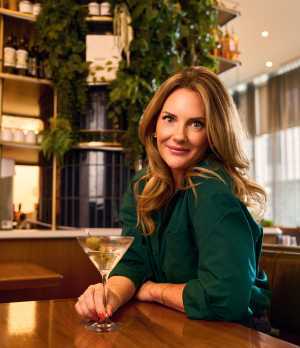
foodism and escapism started out as magazines in the U.K. What made you want to bring the titles to Canada?
“I was working in London at a publishing house and helped launch both brands there first. The ‘freemium’ market was massive over there. Every large circulating print title was free, and you could get it on the streets or in the Tube stations. It was how I consumed all my media. I noticed that there was nothing like that in Toronto. I had the itch to come home, and then saw this massive gap in the market and wanted to jump on it.
When I left Toronto, people like Jen Agg and Grant van Gameren were opening restaurants, and so four years later, they’d really become something. It felt like the city was on the verge of a huge boom in food. So, it just made sense. It’s how most entrepreneurs approach something: They see a gap in the market and go for it.”
Where did Twenty Two Media come from?
“I knew I wanted to launch the foodism and escapism brands here, but you never want to name your company after a brand. You want it to have its own entity. The number 22 is my birth date, and has always been a really good omen in my life, since I was a girl. So, I wanted the name of the company to be something I would feel connected to, and also maybe bring a little bit of good luck too.”
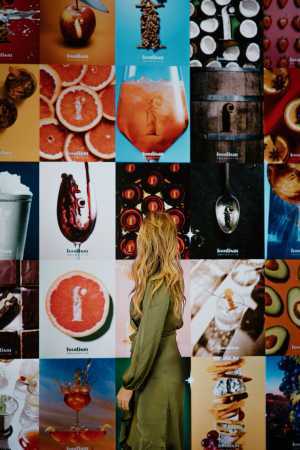
What was it like to start a company on your own?
“The early days were really overwhelming. I do not have a business background; I don’t have a financial background. I just had this idea. There were stages of starting a business that no one had taught me, that you just have to learn along the way.
“The foodism and escapism team in London was a really big support for me in the beginning. They helped make up my initial lean team, which was great. It did mean that I had to work U.K. hours a lot, so my first memories were all very, very early in the morning.
“The foodism site launched in November 2015, and it was a whole site of articles ghostwritten by me. So that was fun. It was me in my bedroom, sitting on my bed, writing all this stuff, pretending that we were a much larger team.
“The first newsletter took me eight painstaking hours, which the team can do in less than an hour now. I wanted it to be perfect. As soon as I hit send, after those eight hours, I ran to the kitchen and did a shot of whatever I could find, which happened to be my roommate’s gin (whoops), and I celebrated alone, as I did with a lot of things at the beginning.
“And then of course the commercial side of things. I had no experience in sales and was now responsible for bringing in all of our revenue. (We’re 100 per cent ad-funded.) It was a huge amount of pressure but I kind of loved it. I still work super close with the sales team to this day.”
What was getting the first print issue like?
“I didn’t sleep the night before, because print is so tangible and it’s forever. The little sleep I did get, I was thinking about what could go wrong in the magazine. There are 100 pages. Will they all be perfect? Will the cover be what we wanted it to be? Will our advertisers be happy?
“I got to Bloor-Yonge station at 7:30 a.m., back when the street distribution team was giving them out during the morning rush hour, and was handed a copy just like everyone else. That was the first time I saw it. I scurried away and opened it up really quickly, so overwhelmed, but totally alone. Once I saw it all looked OK, I scurried back to the rep, and said, ‘This is my magazine.’ She was clearly not as excited, but was willing to take a photo of me. It was my one perfect moment to capture me holding my first magazine, and there’s this man making a hilarious face in the background. I could have photoshopped it over the years, but it’s just become too iconic. We’re keeping it.”
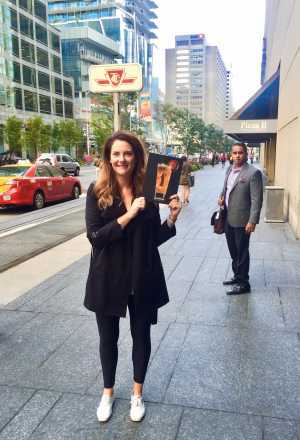
Krista Faist holding the very first issue of foodism, which hit the streets in 2016 — with the now-infamous, accidental photobomber
What helped you succeed in the beginning?
“My focus was twofold. One was saying yes to everything. I said yes to any event, any opportunity to go to a show, do a ticket giveaway or partner with somebody. And the other was just talking to anyone I knew in the space who could support foodism, and everyone I spoke to was so overwhelmingly excited to help. I always tell people just ask those connections you have. If you’re passionate about it and excited about it, people want to help you. I think we’re all a little scared to bother people, but man, everyone came through. I believe in karma, and what you give is what you get. So equally, when people ask me for things now, I help when I can.”
Who were some of the early supporters of foodism?
“The first is the Loblaws media team, and that’s because they were our launch partner. They believed and invested in us big at the start. I was pitching them this magazine that didn’t exist here in Canada yet, and I had to pitch it to this boardroom of Loblaws executives. I didn’t sleep. I printed 200 pages of this pitch to make sure there were enough to go around. It ended up being just a conversation. But it went well. They really believed in what foodism was to become, and that was amazing. They’re still a distribution partner to this day.
“I also want to give a big shoutout to the Drake Hotel, because they had a huge following at the time. I had a good friend there who really came through. I spoke to them about doing a collaboration to help launch our newsletter database, and they were all in.”
How has the company changed since the early days?
“I sleep more. That’s mainly because it’s gone from me to we. There is a fabulous team now around me, and I don’t have to pretend to be all the roles. I still head up our core financial, HR and publishing duties with the business, but I have a really great team that manages the rest. We run a lean squad, but everybody shows up every day and does their part.”
“We’ve got two magazines now. foodism is celebrating 10 years, and escapism is slightly behind that. We launched our creative services division, which was not in the original business plan, and actually came out of the necessity from brands. That was something I learned: Lean in and hear what people are saying and fulfill a need, which we did. And we now have this whole lovely creative division where we’re doing work completely unrelated to the magazines for brands that need help with their creative assets.
“This also led to us launching our XM/Events division. We’ve got the foodism ICON Awards which is in its third year and we do private client events as well.”
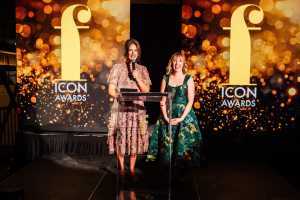
What has been the most challenging part of it all?
“This sounds a bit cliché, but honestly, what hasn’t been challenging? You certainly don’t become an entrepreneur, and you don’t become one in this field, for the stability. It has changed every year that I’ve been in it. There are some things you can predict, like ad spending and consumer habits, but then there are things you can’t predict, like a global pandemic that will wipe away your street distribution overnight and put a lot of things on pause.
"So, the ever-changing landscape of Canadian media has been the most challenging part, but it’s also exciting because no two years or even two days are the same. Because of that, it’s ingrained in us at Twenty Two to be incredibly nimble. We’re always adapting to the market, and we never get too comfortable — I think that’s what gives us our edge.”
How has the city changed since Twenty Two Media started?
“As a company, we’ve really grown up hand-in-hand with Toronto’s food and drink scene. We’ve had the chance to cover some amazing chefs and restaurants as they were starting out and have seen them really cement their place in Toronto and on the world stage.
"We’ve really grown up hand-in-hand with Toronto’s food and drink scene"
"We’ve watched chef Nuit Regular expand her restaurant empire over the years. Alo launched the same year as us and is also celebrating 10 years, which is incredible to see, because there is no denying what they’ve done to put our city on the map.
"Now we have international recognition for our fine-dining restaurants from Michelin, but it’s also really exciting to see how many small, independent restaurants there are in Toronto. We’ve seen so many incredible pop-ups become brick-and-mortar restaurants and young chefs make a name for themselves.”
What are your favourite spots in Toronto?
“Every neighbourhood is its own beautiful pocket and you’re never done discovering. I live right downtown, so I have some favourite spots in my bubble (Minami, Pai, Aloette), but if I’m taking someone out for the day, I’m going to Union for brunch, Cocktail Bar for a couple of drinks, Bar Prima for dinner and 416 Snack Bar for some late-night eats and sips.”
What are you most proud of?
“I’m proud of a lot of things, but in particular, I am really proud that we’ve remained a free media brand for our readers for the last 10 years. Despite shifting ad budgets to digital, pandemics and tariffs, we still maintain these relationships with our clients, keeping the magazines ad funded and free for our loyal readers.
“I am really proud of the content we produce and the stories that we tell, both in Toronto and beyond. We have so many anecdotes of people coming up to us and talking about their product, restaurant or them as a person, and how grateful they are that there was a platform where they could shout about it and share their stories. I think that’s at the core of what we do really well.
“Then, of course, I am most proud of the team that we have created here. It would have been a really long, scary journey if it was still just me in my bedroom trying to do all of this, and it wouldn’t have been possible. So much of our team has been here for the majority of the ride of Twenty Two, which in this day and age is unheard of, and something I’m very grateful for. The team around me has made this one hell of an enjoyable ride.”
Ten Years of Milestones
How we grew from a simple digital magazine to a city-wide guide to food and drink.
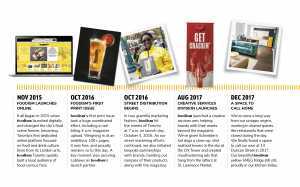
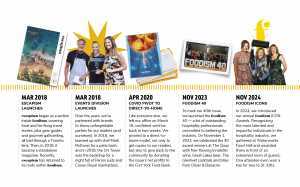
Bites of Praise
Toronto’s culinary rock stars share what foodism means to them.
Patrick Kriss, chef and owner of Alo
“For the past decade, foodism has helped shape Toronto’s dining culture; championing local restaurants, spotlighting chefs and producers, and sharing unique culinary stories. Congratulations on 10 years of impactful storytelling. I look forward to many more.”
Evelyn Chick, owner of Simpl Things
“The first time foodism truly opened a door for me was in August 2021, when they featured me and Evelyn Chick Projects in their In the Kitchen series, shaking up three cocktails. That moment became a turning point for me as I ventured into solo entrepreneurship. Over the years, their support has meant so much.”
Jason Bangerter, executive chef at Langdon Hall
“As a chef who has watched Toronto’s food scene evolve, I’ve witnessed first-hand the positive impact foodism has made on our industry and our city. By telling our stories, celebrating our diversity, and championing innovation and sustainability, foodism has shone a spotlight on the people and places that make the GTA such a dynamic dining destination. It has given chefs, restaurateurs, farmers and makers a powerful platform to reach new audiences and feel recognized for their craft. Congratulations to Krista and her team for not only building a publication but for strengthening a community that continues to inspire and elevate us all. Happy birthday, foodism!”
Afrim Pristine, owner of The Cheese Boutique
“foodism has always been such an important publication in my eyes. You’ve consistently been at the forefront of food and drink culture, and also celebrating the incredible talent we have here in Toronto and beyond. We need you, foodism! Thank you for sharing your passion with all of us.”
Donna Dooher, founder of Mildred's Temple Kitchen
“A few words about foodism, a publication I truly admire: foodism does a brilliant job showcasing the incredible breadth and depth of Toronto’s vibrant food culture. From up-and-coming neighbourhood gems to restaurants earning Michelin nods, from inventive cocktail bars to the city’s top food shops, from local growers and producers to passionate urban gardeners — foodism captures it all. I look forward to every issue with great anticipation and an even greater appetite.”
Nick Liu, chef and owner of DaiLo
“foodism magazine has always been one of my favourite food publications and my favourite magazine to contribute to. I can’t tell you how much appreciate all the support you’ve given DaiLo over the decade. In some of our hardest times and biggest successes, foodism has been there to lift us up and keep us relevant. One of the greatest moments in my life was when DaiLo was named #1 on the foodism best restaurants list. You’ll never know what that meant to me and the DaiLo fam. Happy 10th anniversary, thank you for everything you’ve done for the Toronto food scene.”
Cory Vitello, founder of Flock Rotisserie + Greens
“foodism has always felt like a true friend to our restaurant scene and its people, celebrating our wins and telling our stories. Hosting their inaugural kick-off party at my newly opened Flock in 2016, with Krista leading the charge, it felt like we were both starting something special together.”
Rebecca Mackenzie, president and CEO of Culinary Tourism Alliance
“It’s been such a joy to work alongside foodism as culinary tourism has grown across Ontario. Their storytelling has not only championed chefs and culinary destinations but also amplified the values of sustainability and local food through their support of our Feast On® certification program and Taste of Place Summit. foodism has been a true partner in celebrating the people and places that make Ontario’s food culture so special.”
Yannick Bigourdan, owner of Lucie, Amano Trattoria and The Carbon Bar
“As a restaurateur in Toronto for 25 years, I’ve seen many trends come and go. But thanks to Krista’s vision, foodism has been one of the rare constants. Merci for proving that in an age of fleeting attention spans, good taste still matters — especially in Toronto.”
Jen Agg, owner of General Public
“I’m very glad foodism exists in our new climate of almost no food coverage.”
